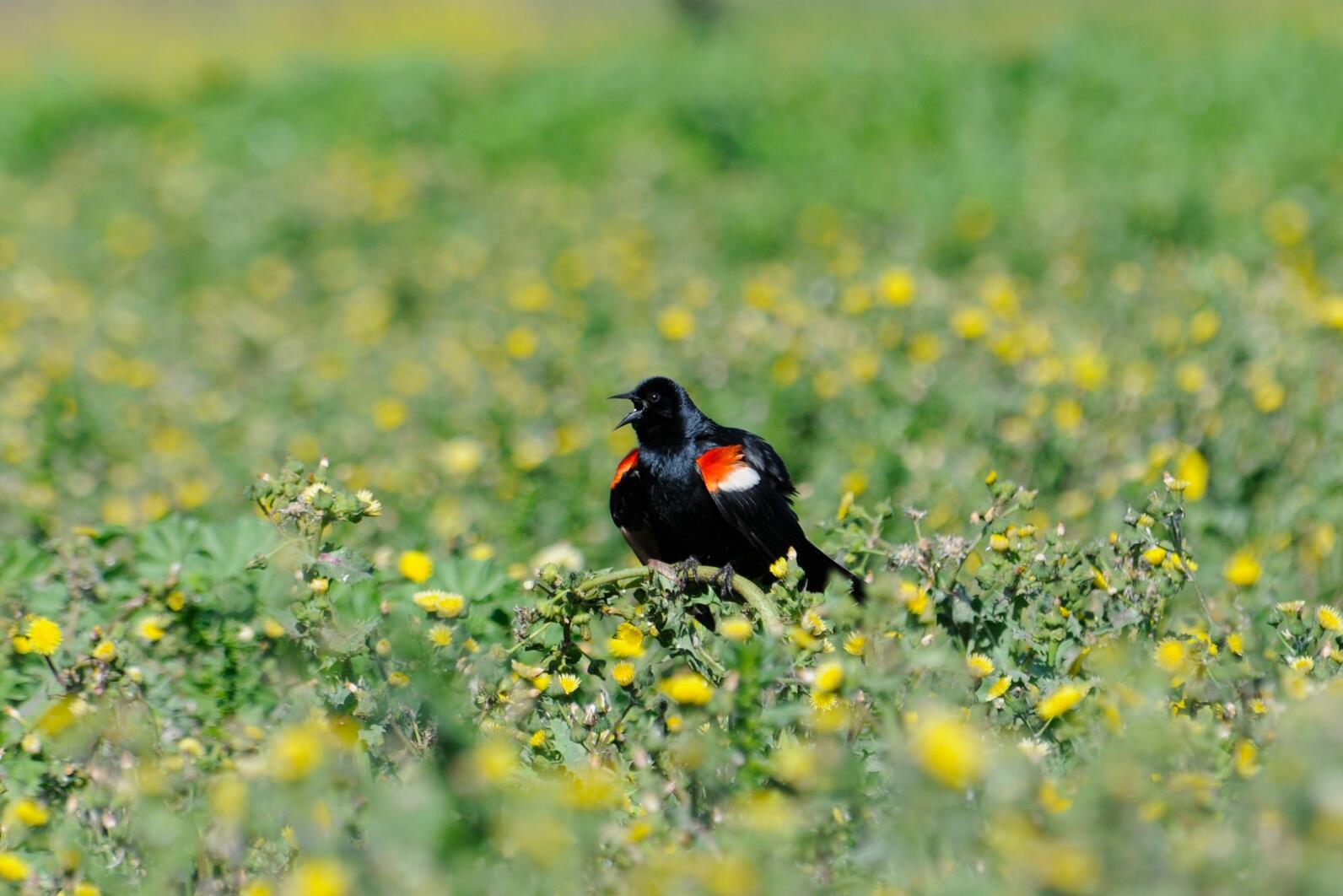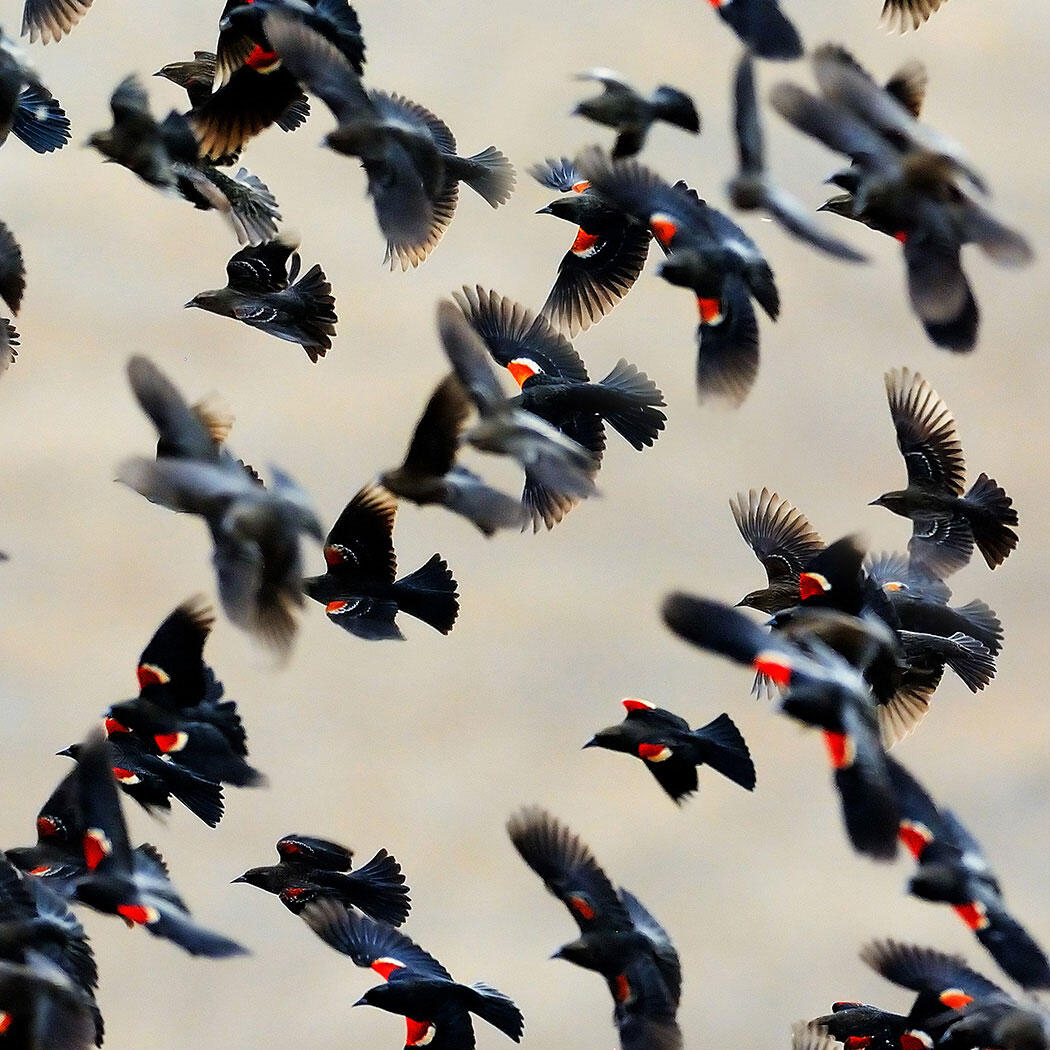(Sacramento—August 18, 2020)—Breeding colonies of California’s endemic Tricolored Blackbird expanded this year to a number of nesting sites where they have not been observed in years, as Audubon California’s Tricolored Blackbird Working Group concludes its sixth summer of field operations.
The trill and white flash of the Tricolored Blackbird is an indelible part of landscapes across California, and especially in the Central Valley. Working closely with dairy producers, we protected more than 177,000 birds in 2020. In most years colonies are reliably found in the same areas, often even in the same field. This year a few colonies were discovered in places we haven’t seen them before.

Each spring and summer, Audubon California works with landowners and other partners to protect this species across the state. The initiative is a collaboration between farmers, agricultural associations, governmental agencies, researchers, and conservation organizations that have all recognized the importance of a multi-faceted and cooperative approach to promote the long-term survival of the Tricolored Blackbird.
“Our field biologist reports 100 percent of the known colonies were protected this season,” said RaeAnn Dubay, with the U.S. Department of Agriculture’s Natural Resources Conservation Service. “We look forward to the continued partnership with Audubon and our farmers to protect the Tricolored Blackbird.”

Historic colonies may have been as large as 100,000 nests. Colony size declined in recent years due to continued habitat loss. This year, the largest colony detected was estimated to host some 25,000 birds. Audubon’s 2019 report Survival by Degrees found that Tricolored Blackbirds will lose up to a third of their current range under even the least severe climate change scenario.
Since 2014, Audubon California has led this collaborative effort through partnerships with the U.S. Department of Agriculture’s Natural Resources Conservation Service, Dairy Cares, and Western United Dairies. The program demonstrates the effectiveness of partnerships between conservation groups and agriculture interests to support farmers and protect birds.
“The partnership that Western United Dairies has had with Audubon has been very important, both to the Tricolored Blackbird and to dairy farmers,” said Paul Sousa, Director of Environmental Services for Western United Dairies. “Dairy farmers provide habitat for a variety of wildlife species, such as the Tricolored Blackbird. This partnership has allowed dairy farmers to be compensated for the loss of feed that we need for our cows while protecting nesting Tricolored Blackbirds, a win-win.“
We are grateful to our partners and our Audubon community. Together, we are winning the fight to save the iconic Tricolored Blackbird.
###
Media contact:
Jason Howe
415-595-9245, jason.howe@audubon.org



